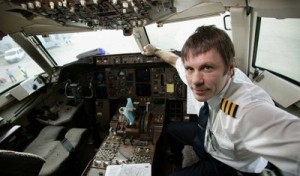 A profession as an aircraft pilot requires many years of intense training and preparation. As exciting and rewarding as the career can be, it frequently comes at the cost of the pilot’s physical and emotional health. Lengthy hours, demanding conditions and significant time spent abroad increases the likelihood that the pilot will turn to substance abuse as a way of coping. When left untreated, this can rapidly descend into a full-blown addiction.
A profession as an aircraft pilot requires many years of intense training and preparation. As exciting and rewarding as the career can be, it frequently comes at the cost of the pilot’s physical and emotional health. Lengthy hours, demanding conditions and significant time spent abroad increases the likelihood that the pilot will turn to substance abuse as a way of coping. When left untreated, this can rapidly descend into a full-blown addiction.
Becoming a pilot is very demanding. Aircraft pilots are responsible for the lives of hundreds of individuals every day. They are also known to work lengthy hours and spend a lot of time away from home, family and friends. Alcohol and drugs provide short-term respite from the related feelings of anxiety and loneliness. Over time, however, a tolerance is formed to these substances and a higher, more frequent dosage is required to achieve the same effects.
Some aircraft pilots find it difficult to stay awake through lengthy flights or during short turnovers between flights. Stimulants ranging from caffeine to amphetamines may provide energy, but lead very rapidly to addiction and other serious physical and mental consequences.
Many aircraft pilots have certain personality types and habits that make it difficult to seek help. Aircraft pilots are strong, independent and self-sufficient; the kind of person who has a difficult time acknowledging what they see as personal weakness, such as choosing the help they require. Many aircraft pilots are also natural risk takers and develop a strong liking for the effects of certain substances. Many aircraft pilots fear for their careers if they were to confess to a substance abuse problem, and the demands of the job cause many pilots to procrastinate treatment.
Specialized addiction recovery treatment programs are available to aircraft pilots. These programs are aware of the unique challenges that aircraft pilots face when it comes to addiction. They provide an array of services, for example private personal counseling, support groups for pilots, medically supervised detoxification and specialized aftercare programs. If you are a pilot looking for help, or if someone you know is an addicted pilot, do not keep postponing treatment or attempting to quit by yourself. You deserve the very best help available. Specialized treatment can be the way to a future free of the worry, frustration, and discomfort of addiction.